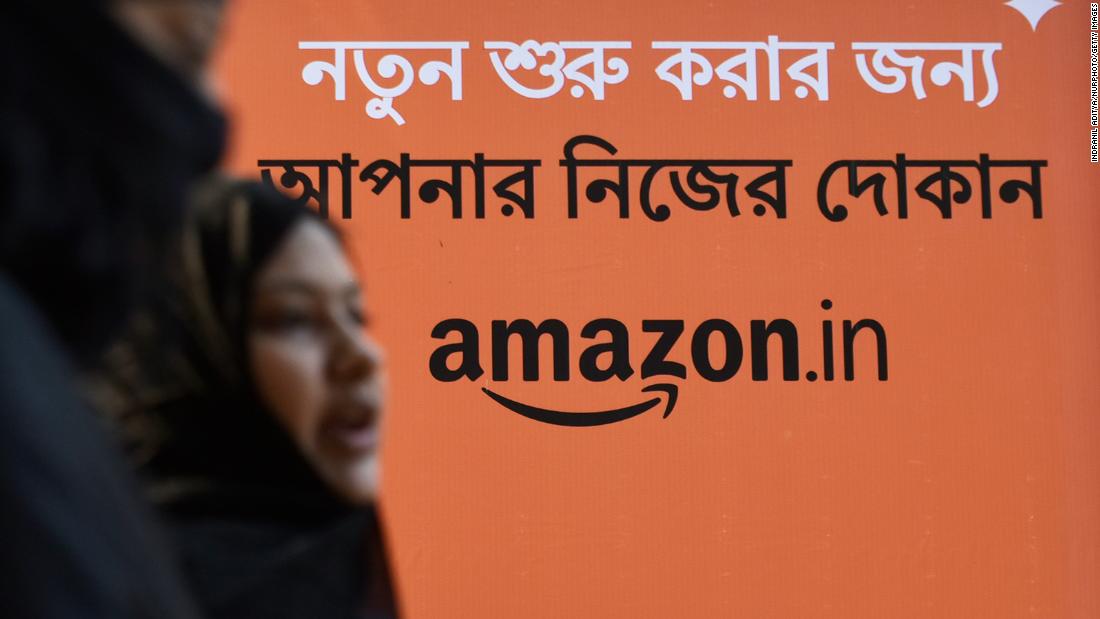
But this year is particularly important as the world is reeling from the economic fallout caused by the coronavirus pandemic. Millions of Indian shoppers are still wary of venturing into brick-and-mortar stores, and Meena expects online sales to grow more than 34% to $ 6.5 billion this year.
“This is the time when consumers are really in spending mode,” he said, adding that sales for about a month This period is expected to account for 18% of India’s total online shopping by 2020. “This is why all businesses want to win the battle during the holiday period.”
Flipkart’s competitive advantage during the holiday season
Flipkart’s seasonal shopping event, Big Billion Days, kicked off on Friday.
The company has built its strategy around selling affordable products to the large number of lower-middle and middle-class online shoppers in the smaller cities of India, according to Rajneesh Kumar, Senior Vice President and Director of Corporate Affairs for Flipkart.
“A significant number … of people in India are looking for good value for money,” Kumar said. “If you provide the right value and the right customer experience, you win.”
Last year, the American company was ranked the most trusted online retailer in India in an annual survey conducted by TRA. The market research firm reported that 10 times more respondents said they trusted Amazon than Flipkart, which came in second.
“Flipkart and Amazon are shoulder to shoulder in the e-commerce wars, in terms of their product offerings, their initiatives to bolster affordability and increase consumer confidence, and most importantly, their last-mile delivery initiatives.” Prabhu Ram said. Head of the Industry Intelligence Group at the CMR research firm.
Forrester’s Meena agreed, noting that a “clear winner” has yet to emerge.
But he added that when it comes to holiday sales, Flipkart has “an advantage in terms of how much money customers spend.”
That’s because Flipkart dominates online fashion sales, Meena said, adding that the company has strong ties with smartphone brands to offer deep discounts.
The importance of Diwali
Since then, they have worked to improve their supply chains, especially before the holiday season.
Amazon opened a new warehouse in Bangalore this month to handle the surge in holiday orders and hired 100,000 seasonal workers, 10,000 more than last year. Flipkart said it hired an additional 70,000 warehouse and delivery workers to handle the rush, an increase of 20,000 people from 2019.
Both companies have also translated their platforms into more languages, which they say will help. They reach more buyers in smaller cities and rural areas.
“We have prepared very strongly for the holiday season,” said Minari Shah, director of public relations for Amazon India. Amazon’s Great Indian Festival starts on Saturday, but members of its Prime subscription program have access to deals the day before.
Like Flipkart, Amazon declined to discuss past or projected holiday sales figures, but Shah noted that “without a doubt, [the holiday season is] a very important part of our calendar. ”
Like the US retail events Black Friday and Cyber Monday, online shoppers in India are loading virtual carts in advance as they wait for sales to begin. Retailers often offer deals on fashion, smartphones, and consumer electronics, as well as holiday staples like candles. , lights and other decorations.
“Since I need to buy a couple of devices, I feel like I can wait a couple of weeks until the sale starts and get a better deal,” said Anshul Arzare, a banker who lives in Mumbai.
Arzare said he has seen an increase in online shopping since the pandemic began. In his apartment complex, “there is a designated area for delivery men, and at any moment you can see an Amazon boy with 20 packages.”
The professional said he prefers to use Amazon.
“The experience has been quite good and intrinsically I have more confidence in the delivery of Amazon products than in Flipkart,” he said.
Jio is not much of a threat, for now
“Although it is quite nascent, JioMart is ambitious and, with a cocktail of attractive discounts and cash-back offers, it will seek to attract online shoppers,” said Ram of CMR.
JioMart did not respond to a request for comment for this story. For now, it only offers groceries online, leaving Flipkart and Amazon to vie for deals on smartphones, consumer electronics, clothing, and household items.
But JioMart plans to enter the fray soon.
“In addition to groceries, we will expand JioMart to cover electronics, fashion, pharmaceuticals and healthcare in the coming days,” Ambani said at the Reliance Industries annual meeting in July.
Flipkart said it welcomes more competition.
The growth of India’s e-commerce industry “requires a lot of investment on the ground to build the supply chain,” Kumar said. “More players are good because more and more investment will come to build that supply chain.”
Whether it’s Flipkart, JioMart, or some other e-commerce player, Shah said Amazon tries not to get caught up in what rivals are doing.
“We watch them, but we are always more focused and obsessed with our customers than with the competition,” he said.
The competition will only intensify. E-commerce sales account for just 5% of India’s total gross value of goods, according to an August report by consulting firm McKinsey.
But now, due to the pandemic, “India’s digital economy is about to take off,” Ram said, adding that businesses are also attracting new consumers as rural areas of the country go online.
“Some of the trends we see this year will be here to stay,” he said. “I don’t see a return to the way we were.”
.